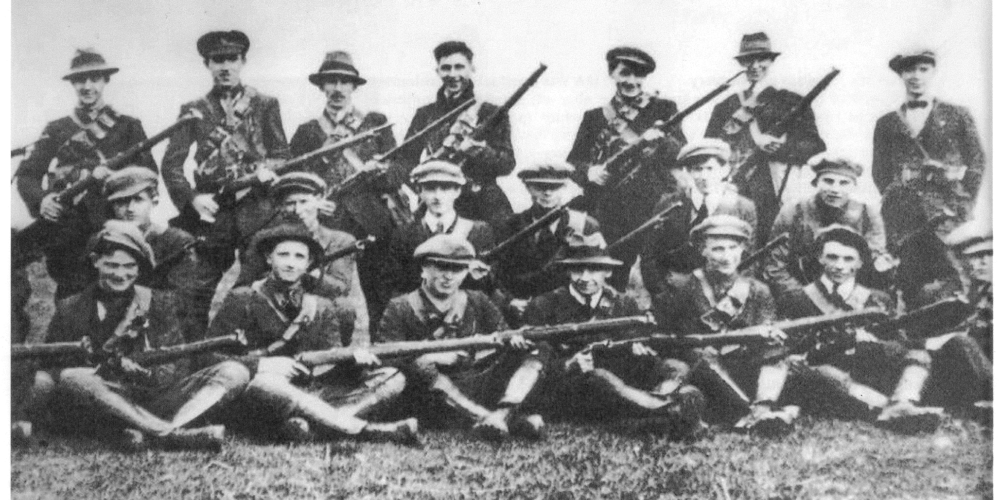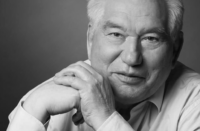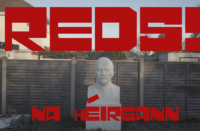Covid-19 has not been all bad news for those who govern Ireland’s 26-county state. Apart from giving Leo Varadkar and Micheál Martin continuing opportunities to pose solemnly in front of the television cameras, it has allowed the Irish establishment to quietly ignore seminal events of a century ago.
While the pandemic has obviously restricted public gatherings, official Ireland has done little to highlight or reflect upon the past. It’s almost as if the War of Independence was a disturbing and uncomfortable family secret, best when seldom mentioned and only talked about in public if absolutely unavoidable.
The proffered rationale for this neglect is invariably misleading and trite. “Say little in case it might inflame passions in the North,” they mutter. No need to revisit that period, since we are now so friendly with Britain, we are assured. Best not to dig too deep, because your neighbour’s grandfather may have been a member of the RIC or even a Black and Tan. And look at the difficulties commemorating that bunch of thugs caused Charlie Flanagan, not to mention the leadership of Fianna Fáil.
Of course if discussion of the period cannot be avoided, then endeavour to undermine the idealism, introduce the unpleasant, and imply that there is still worse to be uncovered. For example, Kevin Barry was willing to “kill and to die,” ran the tendentious headline in a recent Irish Independent article. Other sources spin the tale that civilians died in crossfire, women were sometimes abused, and caring fathers were among police casualties.
All undeniably true; but the story is not being told in context.
This misleading slant is often followed by raising questions such as Tom Barry’s account of the false surrender at Kilmichael, or insinuations that the IRA was guilty of sectarianism in certain areas. These are well-practised tactics designed to muddy the waters in order to provide scope for those who wish to equivocate, criticise, or deny.
It has to be said too that certain republicans have tended to oversimplify the conflict rather than critique it. They have promoted a view defining the aftermath as one merely of betrayal of an ideal. In reality this is a version of the “great man or bad man” theory of history.
However superficially attractive the view may be, it fails to provide a concrete analysis of the past and therefore cannot offer a telling insight into the present.
Ireland’s War of Independence is a story worth telling at any time and certainly not something to be shied away from. Nevertheless it was more than a series of military engagements, no matter how spectacular some of them may have been. It was a time of revolution, with mass popular participation at the grass roots—a time when the potential existed for fundamental social and economic change. That this latter possibility did not come about is not only revealing but has a crucial bearing on the present day.
By 1920 there existed in many parts of Ireland a situation of virtual dual power. An insurrectionary movement had rejected, and in places supplanted, the authority of a long-established and powerful regime. In its stead the insurgents had established their own governing institution, with its judicial system, police, and army. Not only did this new order have majority support in the country but it enjoyed significant backing from within organised labour, as demonstrated by a number of widespread, paralysing politically inspired strikes. Moreover, labour was flexing its muscle, seizing control of a number of work-places and unashamedly declaring them to be workers’ soviets.
This aspect of the War of Independence—that is, the potential to build a different, secular, socially and economically progressive Ireland—is often overlooked. Yet it remains central to a proper understanding of those events in our history. Moreover, it is one of the main reasons why today, apart from recalling a few outstanding episodes, the Irish establishment is reluctant to revisit that period. To do so would involve examining the struggle for Irish independence within a wider and more meaningful context than self-government alone.
What were the defining characteristics of the Sinn Féin movement of the time? What were its objectives, and why did it fracture? Most important of all, why were working people left out of the post-war settlement?
Writing later, the socialist republican Peadar O’Donnell made the incisive observation that “the middle class, which lurked in the shadow of the republican movement from its rise to popularity, was no part of the freedom forces; it had no aim that could not be realised in Home Rule within the British Empire.”
Therein lies a profound and accurate explanation for the Civil War, the genesis of which lay in conflicting class interests within the insurgent forces. Unfortunately, such clarity or insight was missing from among a majority of the anti-Treaty forces, a blind spot that focused attention then and subsequently on superficial aspects rather than the substance of the new 26-county arrangement. This misconception facilitated the emergence and endurance of a bourgeois state, a state immersed in crony capitalism and in effect beholden for its survival to the tenets of contemporary imperialism, whether British, American, or European.
Hardly surprising, therefore, that the Irish establishment is so uneasy about taking part in a deep reflection on the War of Independence and its immediate aftermath. Uncomfortable questions would be asked about the southern Irish state’s failure to address so many issues. How is it that almost a century later, and in the grip of a dangerous pandemic, we have a two-tier health service, failing abysmally? Why indeed have we two uncoordinated health services on this small island? Why have we a homelessness and housing crisis? Why do we still have a financial sector unanswerable to the people? Why is the Taoiseach unwilling to declare his support for an end to partition?
These and other questions will be addressed during a three-day digital festival organised by the Peadar O’Donnell Socialist Republican Forum to celebrate and analyse Ireland’s War of Independence. Taking place on the 27th, 28th and 29th of November, it is designed to coincide with the 100th anniversary of the Kilmichael ambush. The festival will explore, in conversation with a range of expert speakers, many aspects of the struggle. In particular it will asses the effect of those events on the present day, with a particular emphasis on the theme that now, and after such heroic struggle, “Labour must wait no longer.”
■ Festival details and timetable will be available on the Peadar O’Donnell Socialist Republican Forum’s Facebook page.






